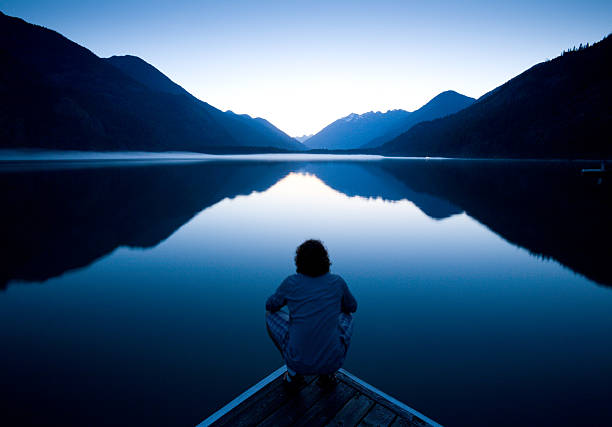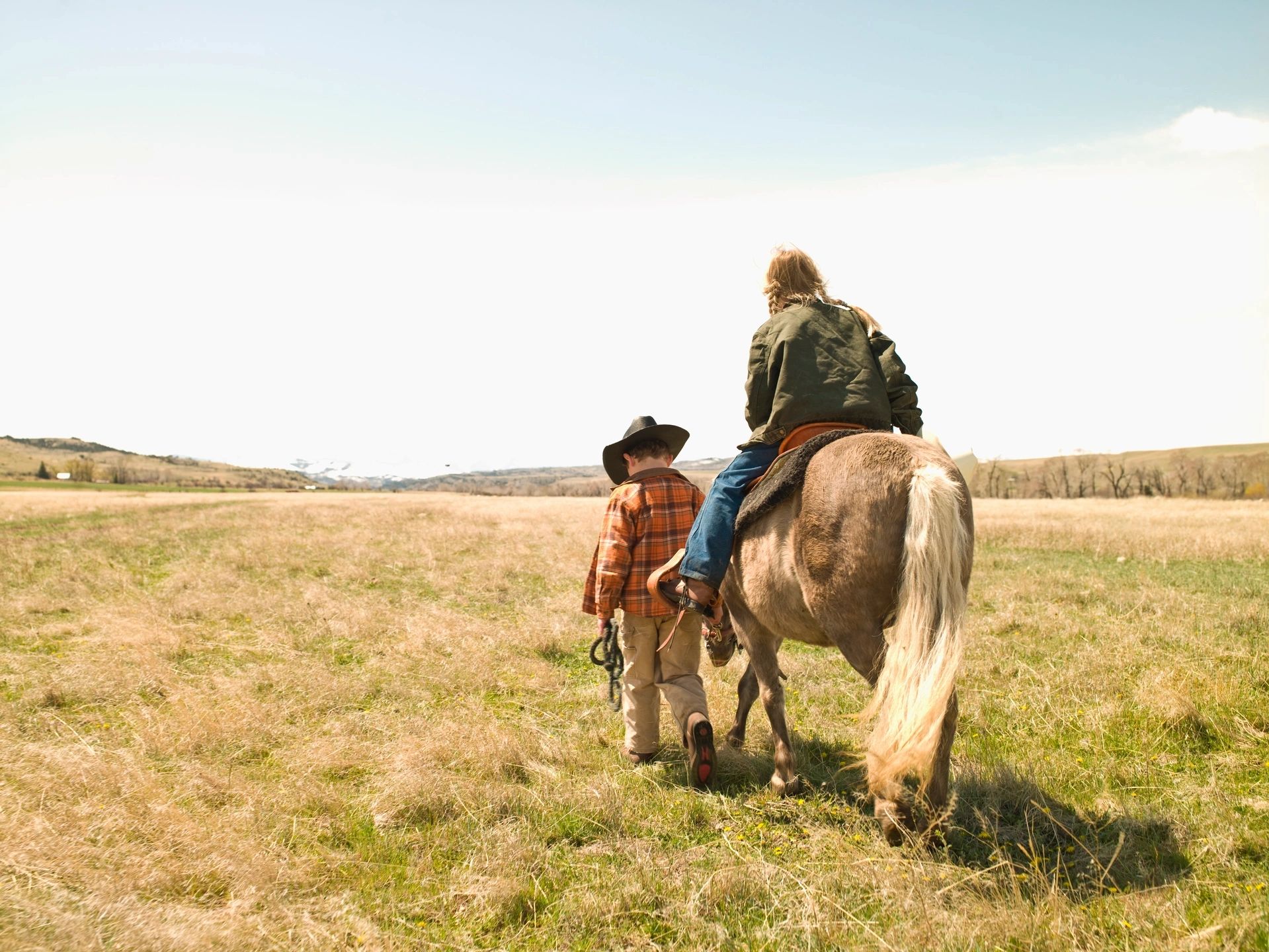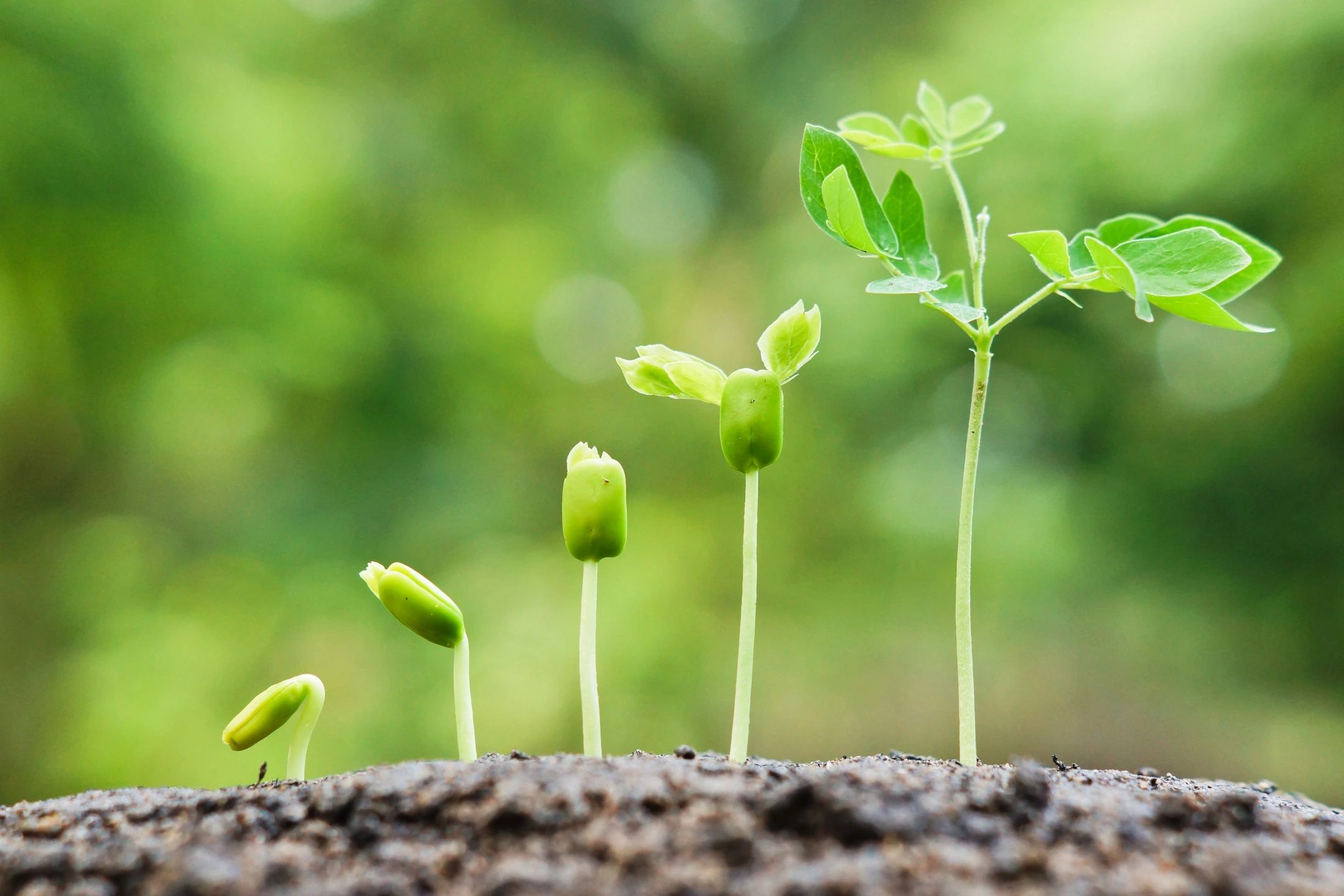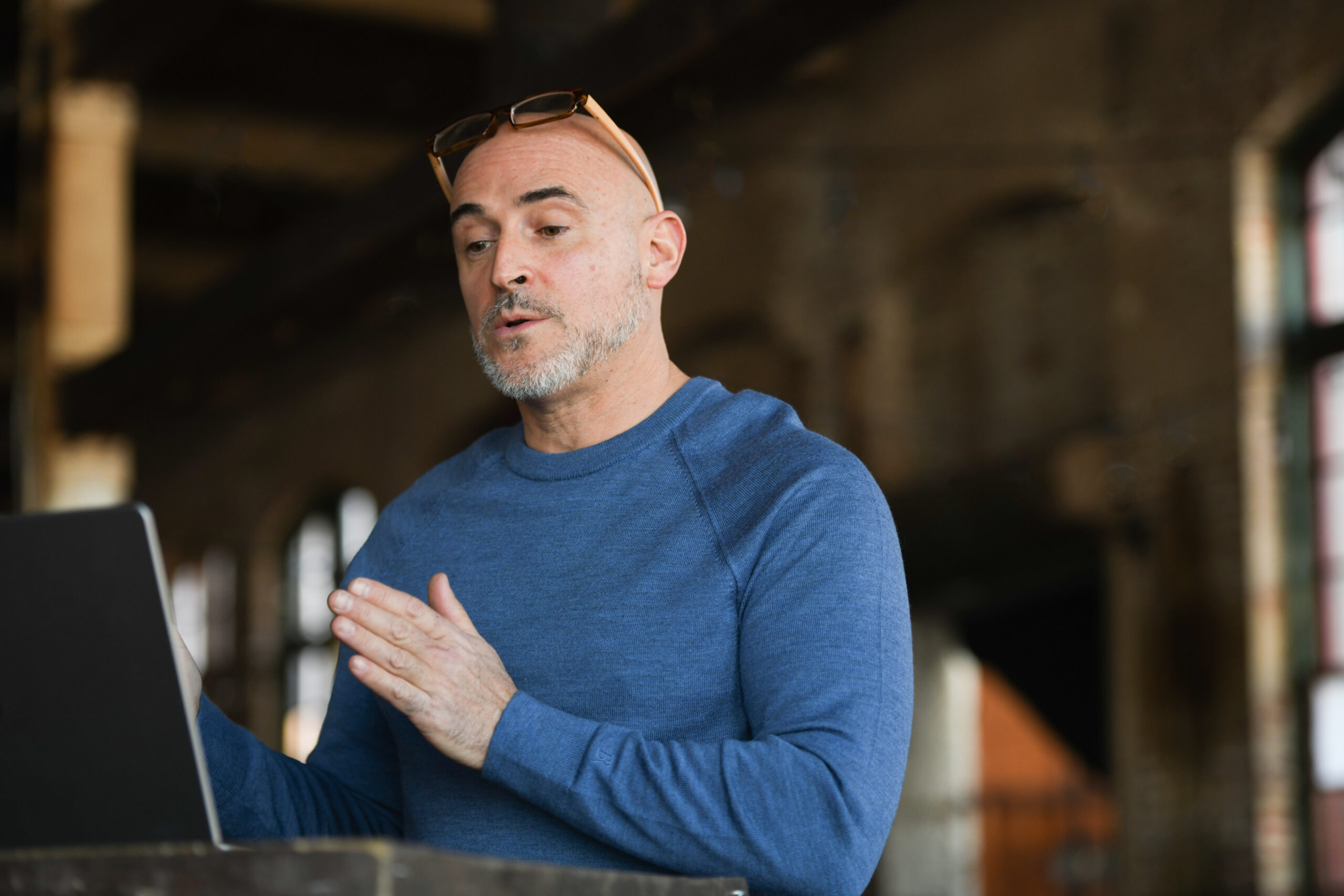R. Minervini
One of the most difficult things to reflect upon is
“Who we really are.”
Are we living Authentically, as nature created, or have we modeled ourselves into something different?
When reflecting upon our lives (through the prism of Personal Growth) and questioning whether we are truly living the life that best reflects our True Self, we often begin and quickly end with critical judgment of our interests, our goals, and the people we cared for. We then score that against our happiness, our achievements, and the people we are currently spending time with, and we think. “There, I did it, self-reflection Over!”
But what we often overlook is the fact that we have been slowly covering the truth with projections.
In these next several paragraphs I will show that with self-reflection, we can begin to identify these projections, and try to find our primal interests. The importance of this is to reacquaint ourselves with our natural existence and to see if we have been living our truest self.
Through coaching, we guide you to identify such projections, and help you to uncover your core interests. This is completely individualized and specific to each person, and their personal journey. Finding our weaknesses is often the difference between stagnation and growth.
Let me use a more familiar coaching reference. Imagine an overzealous and confident young boy visiting with a batting coach to improve his performance, and the coach takes one look at him and says,
“Are you ready to correct all these mistakes in your stance?”
A confident young boy usually looks in amazement (albeit embarrassed or angry) and thinks, “What mistakes?”
We too must be willing to face the fact that we are living a life with traits and portrayals that hold back our natural selves. We do not do this to focus on the negative or to disrupt our momentum and progress through life, but we do it to ask, “Am I aware of the things that I am doing that prevent progress?”
“Is there something that I can change, to improve on, or to be happier?”
Reflection, for purposes of Personal Growth, is a personal exercise of peeling back the layers that have been covering our core, to expose what lies within. Once there, we can build on the foundation that our biology supplied.
Every step forward after that can bring happiness. It aligns our natural stride with our natural interests, and together, they begin to exhibit, ‘Who We Really Are.’
Here are two methods that can be used to initiate the process. This exercise is not always easy, and sometimes things really do seem unfair, but every bit of information is fuel for progress. Understanding who we are is a bit more complex than the simplicity of the statement. It is a deep dive into our identity. The work that is needed, lies somewhere between the conscious and subconscious.
I refer to it as exercise, because it is not psychotherapy.
It is mental work that we can do ourselves. It reveals information that is often covered by the projections that we hear from others, and the projections created by our emotions and perceptions. They exist as a combination of our historical experiences and our conscious memories. It is better understood as; ‘cataloged experiences.’ Or in simpler terms, a documented timeline of the life that we have been living, (from our past to the present).
These experiences can often be found in things like diaries, journals, scrap books, photo albums, love letters, resumes, and on our social media pages. We look at them as references, and depending on our mood, we use these experiences to describe ourselves, based on what we see, what we read, or what we feel about those moments. Often referring to them when trying to understand or explain our behavior and personality. Unfortunately, these are nothing more than captured moments, caught at specific times in our lives, that we conveniently use in the present to create a depiction of who we ‘now’ are.
The unfortunate reality is that for every day we moved forward, it was NOT with clarity that we created this persona, it was with subtle delusions and interpretations of who we thought we were. And with every passing day since, we bring these interpreted moments with us, claiming;
“Well, that’s who I am, I’ve always been that way.”
What is even worse, depending on our daily moods, we add new and changing interpretations to that projection, piece by piece. Creating our perfect Frankenstein.
It reminds me of the famous quote by René Descartes.
“I think, therefore I am.”
We create, defend, and confirm a memory, and paste it in our brain, and suddenly it becomes who we are.
Remember, for purposes of coaching, and not psychotherapy, we do this work, to awaken the person beneath, the person that I am calling “our natural self.” The memories that I am speaking of are those which we are conscious of, not those more difficult subconscious memories.
We can work on things like remembering our life’s milestones, difficult obstacles, any traumas that we remember, descriptions of how we acted from our older family members, personal experiences, interests, hobbies, & achievements, our fears, and some familiar and uncomfortable truths that we are willing to admit.
Although some of these things do, in fact, contribute to who we are today, They seldom reveal the core of who we naturally were. What they commonly reveal is how we became, who we are living as today. Who we naturally are would be more accurately compared to who we were as children. What’s unfortunate is that who we naturally were as children has been chipped away and stifled, over the years. As you can all probably remember, every age past being a toddler, our parents, caretakers, and teachers, have been interrupting our natural stride and sometimes uncensored thoughts and actions.
They would tell us things like; “Stop doing it that way ,”
“Your are such a dreamer,” and “C’mon, just follow my lead,” etc.
This is a big deal! This redirected our natural stride and development.
For better, but maybe sometimes for worse.
Knowing who we naturally are, versus who we currently are, can be completely enlightening to us and sometimes very encouraging.
It is an acknowledgement of how we may not be living our true selves. Certain traits that we believe to be ours could have come from elsewhere and unfortunately could have been guided by the influences of other people.
We do not do this to find and make excuses for our fears and failures, it is more an opportunity to recognize that we may have gotten off our natural track, and therefore find it sometimes uncomfortable to continue. Because of this, we must begin with the challenge of eliminating any description, ‘of who we are,’ that we may have heard or may still hear, from others.
These descriptions are typically polluted by ‘their’ perception of who they think we were, who they wish we were, and whatever they may have been going through during the time of each memory they have of us.
But it’s not only the projections of others that get in the way of being in stride with our natural selves. We must also understand that our own memories, emotions, and perceptions are often diluted by our feelings, ‘then and now.’ Because our feelings about our emotions, unfortunately, destroy the accuracy of the truth saved in our consciousness.
For example: We may remember how nervous we were during a childhood school play. But do we remember what led us to being nervous? Or, how well we performed during that play? Or, if anyone even noticed our nervousness at that very moment? It may Not have been noticeable at all.
Yet, we have carried the description of ‘nervousness’ with us for 30 years.
Why didn’t we carry the fact that we performed flawlessly, or the fact that it was not even noticeable to others.
Apparently, we carry the feelings, more than we carry the accomplishment, the truth, or the experience. Even worse, we carry it as if it’s a permanent character trait of who we are.
Why wasn’t it just saved as a single experience? Like spilling a glass of water. Or hitting a foul ball. Or forgetting to tie a shoelace.
(if so, we would have just left it in our past like all the other mistakes)
Somehow the ‘feeling’ was saved with more importance than the experience.
With regard to self-reflection, mental exercises are a great starting point to begin. These internal investigations trigger a journey into our past, and help clear away any cobwebs. Especially, if we are willing to try it with patience, humility, and with sincere intent to analyze our emotions,
Diving into emotions (and our feelings) helps clarify “likes and dislikes,” and it opens the door to my favorite question ever,
‘Why’?
“Why did I like or dislike it?”….. “Why did I feel that way?”….. “Why did I react that way?”
This is where real discovery and growth happens. It does not give us immediate answers; but it helps us identify who we are, behind the conscious perceptions. How we created this current persona, and how our natural character may have been redirected. It also begins to expose some of the reasons for our current anxieties and hesitations.
If one feels comfortable searching the ‘why,’ and is truly willing to hear the answer, (good or bad), it exposes and encourages accountability and change! Which is the purpose and benefit of Personal Growth.
There is also another exercise that proves to be beneficial to self-reflection.
I call it, ‘The Open Mirror.’
Moments when we are willing to admit any vulnerable truths about ourselves, ‘To Others.’ Some may feel comfortable doing this with a friend or family member, others may choose to use a Personal Coach in privacy. These moments are not so different than when sitting with academic tutors or athletic coaches. In these moments, we are humbled enough to ask for help, confront our flaws, or nudge our stagnation of growth. When doing this, we admit that we need help in one area or another. Admitting our fears, weaknesses, and our insecurities to others is as primal an experience as taking one’s first step.
In simple terms, It is the willingness to stand up with the risk of knowing that we are most likely going to fall on our first try.
‘Seeing if by taking the chance, something positive may come of it.’
Admitting that we need to start back at the beginning, is a very safe place to be. Especially when we are there with someone we trust. Once again, we do not do this to reach any immediate conclusion, or that by our admission we are immediately recovered and improved. We do it to get another shot at getting it right, or to get us realigned with our natural self.
It is at these moments that we prove that we are comfortable admitting that flaws may exist,
and that it is by Our Power that they continue to exist.
At this point, we are now close to being ready to pass through any doorway that stops us from understanding our true past and future potential. If at these moments, we don’t just stand there, and declare, ‘There, I did it.’ But instead, we allow ourselves to reflect and keep asking, why? But why?… and then, why again?
We will ultimately retrieve answers and reasons.
These answers do not take the onus off us, but they help us understand why, ‘we are where we are.’ And with those answers, we can now take small steps on accepting and/or improving!
Admission, acknowledgement, and accountability is Personal Control.
It places us in the driver’s seat of our personal journey through life. And it is driven by curiosity, for the sake of resolution. “I know what I like” …. “I know who I am” …. “I have allowed myself to be this way” and
“I now know that I hold the power to choose my own way.”
This is Personal Fortitude.
It is when we begin to feel comfortable standing in front of a true reflection of ourselves. As if we were standing in front of some magical mirror of; ‘One’s True Self.’ It is not always easy. To some, it is like change, it may sound terrifying. But it is where the magic of self-reflection begins.
The goal of Self-Reflection is to Confront ‘Who we are.’
The goal of Personal Growth is to Be, ‘Who we are.’
Finding our weaknesses is often the difference between stagnation and growth. “Am I doing things that prevent me from moving in the direction that I wish?” “Am I living my life the same as I profess that I am?”
This reflection reintroduces us to who we were. It reaffirms our relationship with our natural self. Which then leads us to wanting to do more of what we like! and by doing this, we begin liking who we are, and then enjoying our days more.
You see, the purpose of Personal Growth is simple, it is to “find happiness.”
To do that, we must live happily and with little regret. Love your life as much as you love doing the things you like; with the people you like.
and the only way to do that, is by living your Natural Self.
When we are happy, we project happiness, and others see that. If we protect that, and those who love us respect us for that (and we them), then every day is spent understanding that we, and our partners, and our children and friends, are being exactly who they were meant to be.
Remember this, if not anything else.
“We have one life to live,”
and with that thought, we should be living it joyfully.






